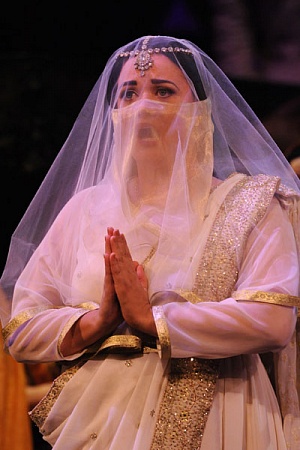Dido and Aeneas

A powerful sense of irony accompanies the poignant final words sung by Queen Dido of Carthage as she contemplates her imminent death in Henry Purcell’s compact three-act, hour-long opera Dido and Aeneas. ‘Remember me, but ah! Forget my fate’, has echoed down the ages since the late seventeenth century, but little is known, never mind remembered, about the actual performance of the opera in Purcell’s time.
Dido’s demise is occasioned by the departure of Aeneas as he is summoned away from Carthage by Mercury, at the instigation of Aeneas’s mother, Venus, to what will become the founding of Rome. Dido, realising that she has been betrayed by Aeneas, sees death as the only possibility to regain her honour and dignity, thus becoming an archetypal operatic abandoned woman in a long line from Monteverdi’s Ariadne to Puccini’s Butterfly. She takes her own life with Aeneas’s sword; the nobility of the music is heartbreaking and has become one of the most celebrated operatic arias, frequently heard in recitals, but also in other versions – Jeff Buckley’s poignant performance being one of the most memorable.
Continue reading for only $10 per month. Subscribe and gain full access to Australian Book Review. Already a subscriber? Sign in. If you need assistance, feel free to contact us.








